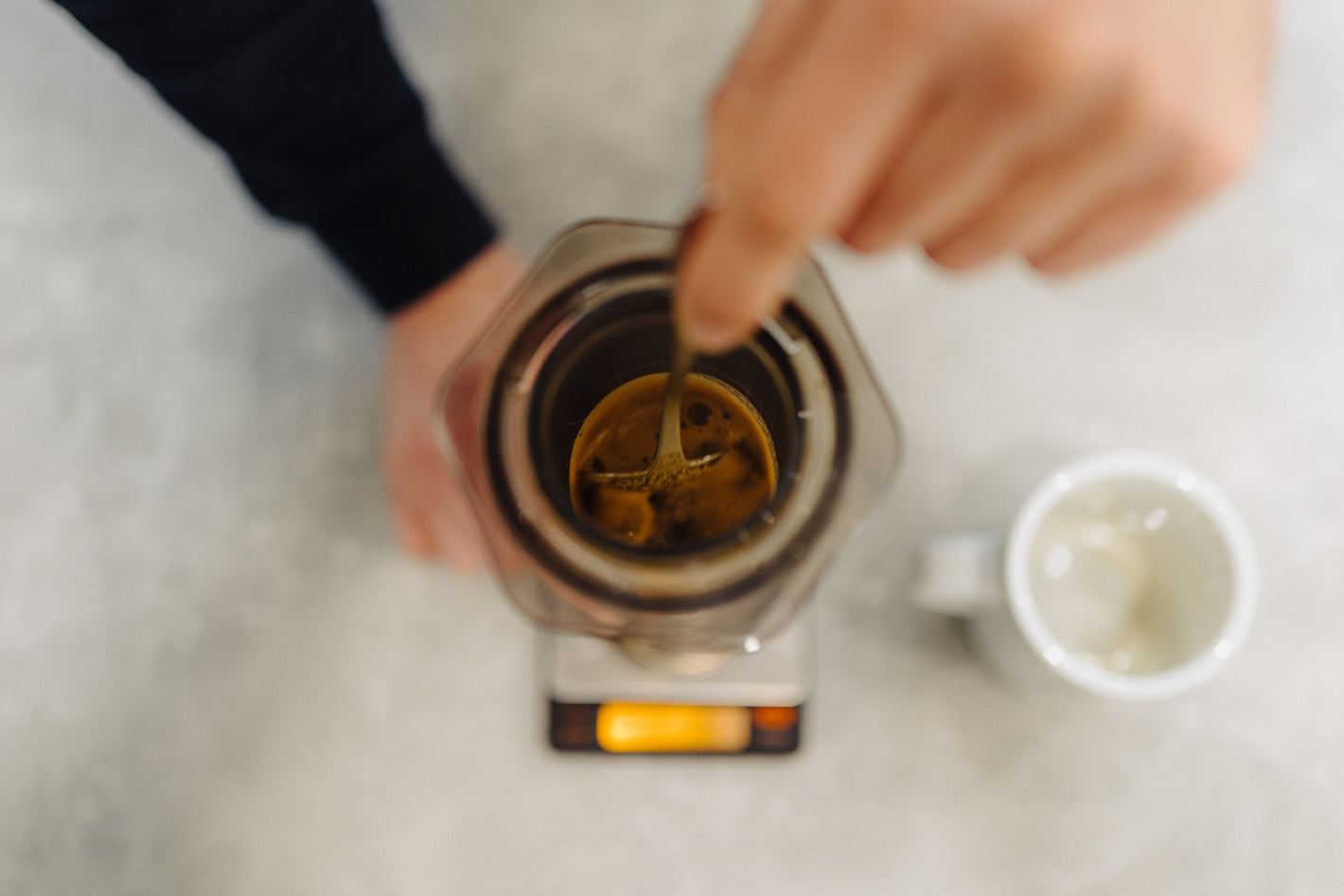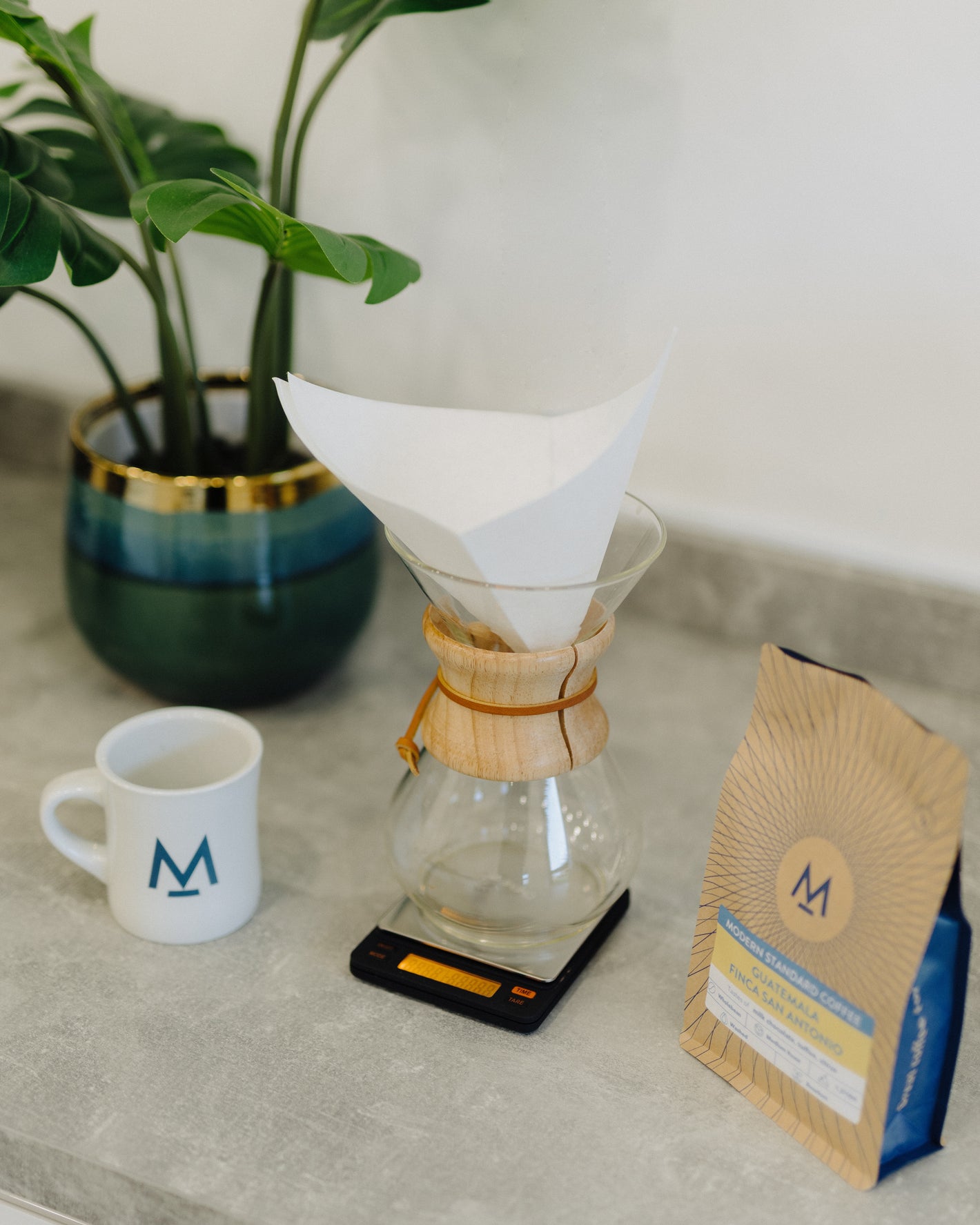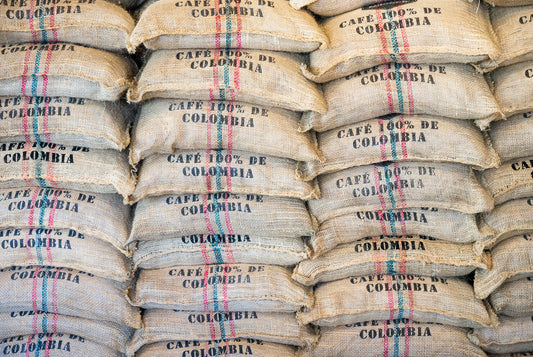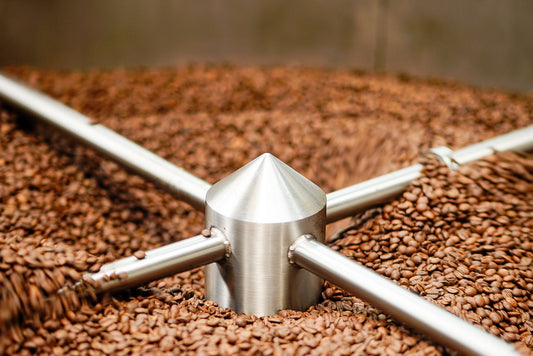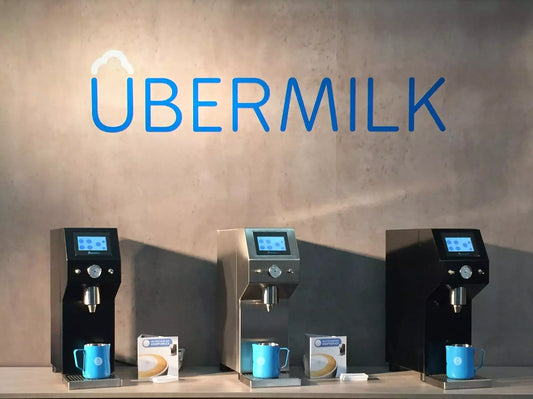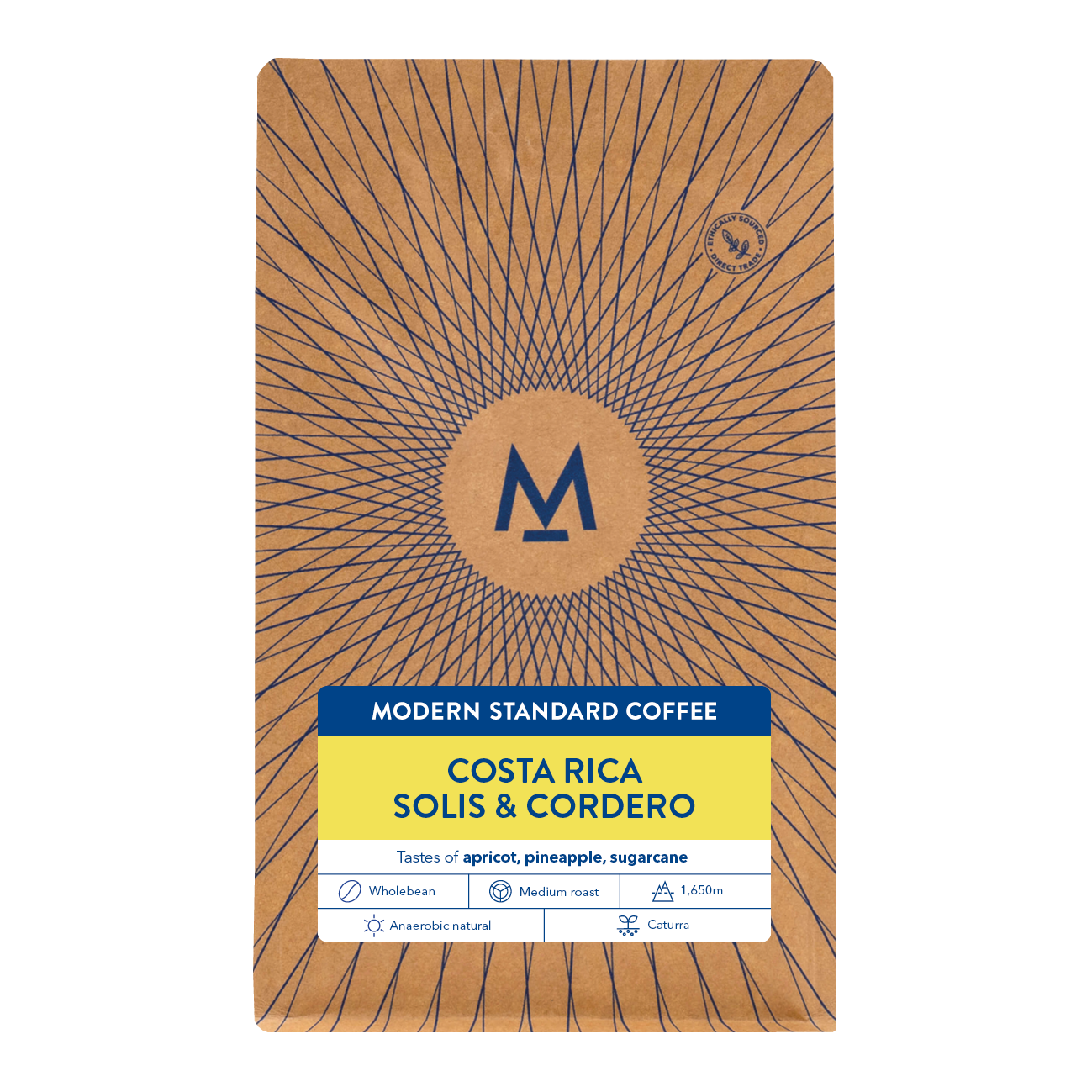
The overview
| Countries of origin | Costa Rica |
| Producer | Iván Gerardo Solís |
| Altitude | 1650m |
| Varietal | Caturra |
| Process | Natural |
The producer
This Anaerobic Natural lot is so sweet and sugary that owner Iván Gerardo Solís R. was inspired to name the process “Candy Natural.” Iván and his family selectively handpick ripe, red cherry and deliver it to Solis & Cordero Micromill. At intake, cherry is inspected and washed in clean water.
The coffee
Then, cherry is fermented in water in sealed containers to create anaerobic conditions. Cherry ferments for 108 hours. Following fermentation, cherry is laid on raised beds to dry. It takes approximately 20 days for cherry to dry.
Why we love it
This coffee is really funky and bold, I love the fruitiness of it. If you want a coffee that's a bit out there, this is one to try.
Sarah's Brew Guide
Out: 31-33g
Time: 24-26s
Water: 305g
Ratio: 1:17


More about Solis & Cordero
Iván Gerardo Solís Rivera has been dedicated to everything coffee for over 20 years. This includes coffee growing, processing and quality control. In 2018 he started his Café Solis & Cordero project with his family and founded their own dry mill.
Solis & Cordero Micromill was founded in 2018 by the Solís Cordero family to help support smallholders in the Santos region. The mill provides a variety of services including cherry processing, selling specialty coffee to international destinations, selling roasted coffee in Costa Rica, consulting on processing and quality control, and export services. For smallholders working with Solis & Cordero, the mill helps them differentiate their coffee by maintaining farm-level traceability and by using innovative, quality-focused processing methods to further improve coffee.

About Tarrazú coffee
The Tarrazú region lies in the high mountains of the southern Pacific region south of Costa Rica’s capital city of San Jose and is one of the most densely planted high altitude regions in Central America, with many farms at or above 2000 meters above sea level. It is locally known as “Zona de Los Santos” for the number of towns with “San” or “Santa” in their names.
Tarrazú’s climate is characterized by two well-defined seasons; a rainy season lasting seven months (May through November) and a dry season (December through April). This encourages uniform coffee blossoming. On average, precipitation is between 2,400 millimeters (94.5 inches) per year, with an average annual temperature of 19°C (66.2°F).
The fertile, volcanic soils and rolling mountainsides of Tarrazu are well-suited for agriculture, and smallholders grow bananas, avocado, and citrus as well as coffee on properties passed between generations. The spirit of community and family is strong in Tarrazu, with producers caring for their land with pride. Many farms in Tarrazú include primary forest and some degree of shade trees interspersed with coffee and producers take care to protect the natural water sources that spring up from the mountainsides.



